 |
|
The Role Nutrition Plays in Heart Health
According to research, diet and lifestyle play important roles in managing risks for cardiovascular disease, which includes conditions that affect the heart. This article will explore dietary and lifestyle changes that can be made for better heart health. This topic is important because heart disease is very common and one of the main causes of death in the Caribbean.
Why are diet and lifestyle important to heart health?
Regulating what is consumed in the diet, as well as your daily lifestyle and activities, play a great role in the health of your heart. What we eat says a lot about how our heart will develop. If we eat a lot of high fat foods, this may lead to fat deposits around the heart, which can cause a heart attack. If we choose to exercise, our body will be able to function better. Exercise helps with circulation, reduces fat, assists in weight control and boosts our moods. The health of your heart can be defined by many factors. The aim is to have a balanced, healthy lifestyle to reduce risk for diseases.
How to have a healthy heart
-
Eat more fruits and vegetables on a daily basis.
-
Choose high fibre foods.
-
Avoid foods that are high in saturated fats, cholesterol and trans fat.
-
Stay at a healthy weight and exercise at least three times for the week for 20 to 30 minutes on each occasion.
-
Reduce consumption of sugary drinks.
Grocery shopping choices
It is very important to buy foods that are healthy for your heart. Most of us tend to snack or eat foods that are in sight or around the house; therefore what you buy and keep in the house plays a vital role in what you actually consume. The aim is to choose foods that are good for you and to reduce the processed foods in your household.
1. Whole wheat staple
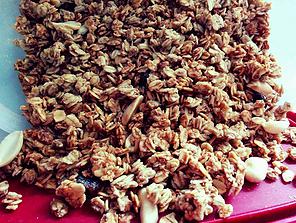
Consume foods that are high in fibre. These include whole wheat or whole grain staples such as rice, bread, macaroni, noodles and crackers. You can even leave the skin on potatoes, but ensure that the skin is washed thoroughly. It was found that when potato is eaten cool, it acts more like fibre. Ground provisions are also beneficial to the digestive tract.
2. Legumes
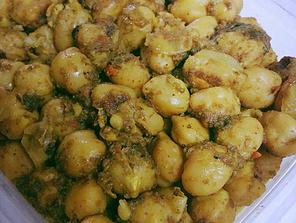
Peas, beans, lentils and split peas are some of the items found in the legumes group. Adding these to your daily diet help to include fibre, protein, fat and carbohydrates in your diet. The added benefit from having fibre in this group is to help with weight control and to assist with digestive health.
3. Vegetables
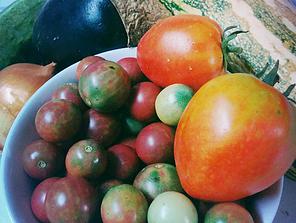
Choosing a variety of vegetables is important with every meal. Did you know that you should be consuming vegetables with each meal every day? One serving of vegetables is 1 cup of raw vegetables like lettuce, carrots or tomatoes, or ½ cup of cooked vegetables such as pumpkin, string beans or spinach
4. Fruits
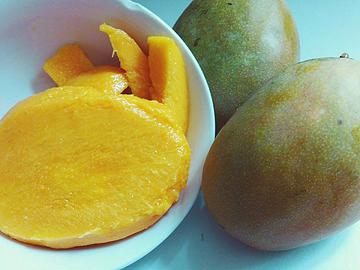
It is better to have a fruit instead of a fruit juice that is processed and not 100% from fruit. The aim is to get rich sources of vitamins and minerals from fruits that are local in our country. It is better to eat a local fruit as a snack rather than processed snacks like potato chips. If you prefer juices, why not blend your fruit and drink it instead? This is the only way you would have control over what you put in your juice. Freshly blended watermelon juice, for example, is a great, heart healthy choice!
5. Lean Meat
Protein sources are an important part of a balanced diet. It is important to meet your protein needs on a daily basis, but your choices should be health based. Consuming lean protein sources reduces the amount of bad fats in your diet and in turn helps to reduce fat deposits in your body. Consumption of red meats such as lamb or beef should be limited to around once or twice for the month.
6. Low fat Milk
When making choices with any type of milk source, whether it is soy, almond or lactose free, the aim is to consume the low fat or skimmed milk. Consuming full cream milk involves the intake of high amounts of fat that can be dangerous to your overall health.
7. Oils
Choosing healthy oils can assist in the reduction of issues with your heart. Canola oil and olive oils are two of the recommended oils. Coconut oil is said to be preferred when there is high amounts of heat when cooking. Olive oil is more beneficial when not heated and when used on salads.
Preparing meals
When thinking of heart healthy meals, it is important that you take into consideration how meals are prepared. It must be remembered that meals prepared on the outside and not at home are made for taste, not health. When you prepare your own meals, you can control what you put in them and in turn take control of your health.
An example of a heart healthy meal is as follows: Fish Soup. It contains the following:
-
Staples: Ground provision or whole wheat dumpling, corn.
-
Vegetables: Green peas, carrots, pumpkin.
-
Food from animal (lean meat): Fish.
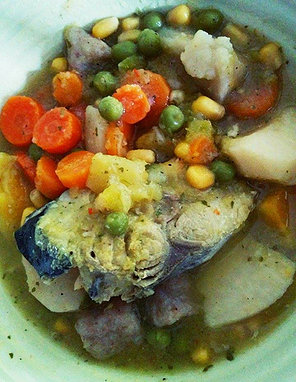
The information provided in this column is for general educational purposes only and is not meant to provide professional assistance or to diagnose or treat any medical complaint. If you are suffering from a serious medical condition, you are strongly advised to schedule an appointment and visit with a qualified medical practitioner.
 |
By: Candida Khan | HEALTH-FITNESS | July 2015 |
Tweet |
Warning: array_search() expects parameter 2 to be array, null given in /home/paradisepulsea/public_html/pages/article.php on line 87
Warning: in_array() expects parameter 2 to be array, null given in /home/paradisepulsea/public_html/pages/article.php on line 104
Warning: array_search() expects parameter 2 to be array, null given in /home/paradisepulsea/public_html/pages/article.php on line 87
Warning: in_array() expects parameter 2 to be array, null given in /home/paradisepulsea/public_html/pages/article.php on line 104
Warning: array_search() expects parameter 2 to be array, null given in /home/paradisepulsea/public_html/pages/article.php on line 87
Warning: in_array() expects parameter 2 to be array, null given in /home/paradisepulsea/public_html/pages/article.php on line 104


| Subscribe |










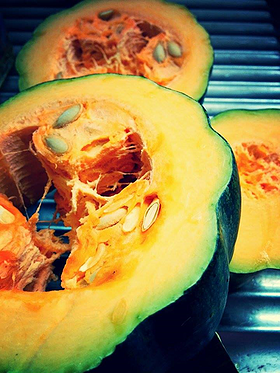
%20-%20Copy.jpg)

